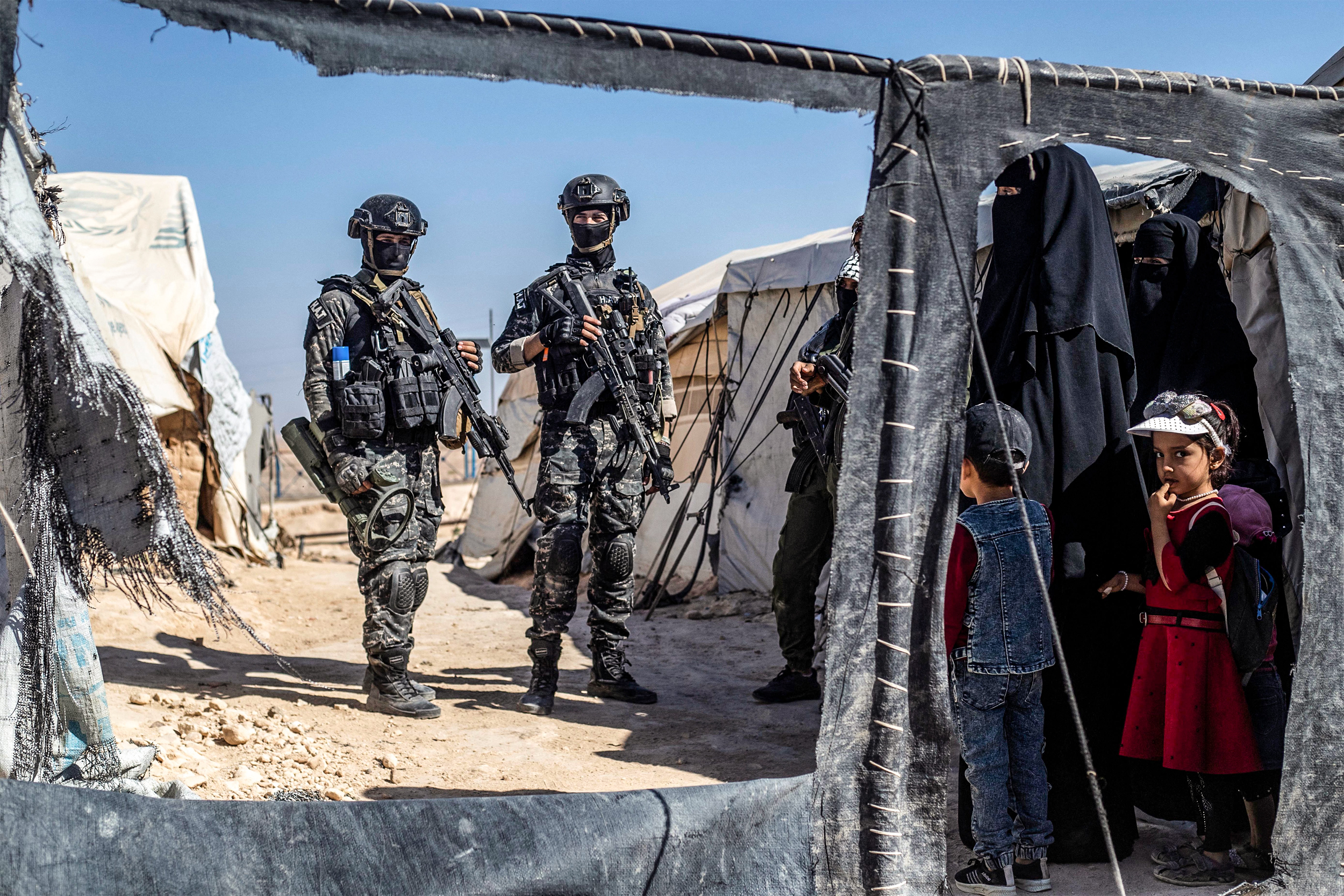
The detainment camps in northeastern Syria administered by the Syrian Democratic Forces (SDF) have been a source of controversy and concern for several years now. The camps and detention centers hold thousands of people, including ISIS suspects and their families, who have been displaced due to the ongoing conflict in the region.
According to the UN the largest two detention camps, for women and children, Al-Hol and Roj hold “56,000 individuals, including 37,000 foreign nationals. Over half of the population in the camps are children, of which 80 percent are under the age of 12 and 30 percent are under the age of five.” The organization further mentioned that there are “850 boys deprived of liberty in prisons and other detention centers… throughout North-East Syria.”
According to human rights groups and activists, the conditions inside the camps are often inhumane, with reports of overcrowding, poor sanitation, and lack of access to basic necessities such as food, water, and medical care. Of particular concern is the plight of children and minors who are being held in these camps. Many of them live in squalid conditions, without access to education or proper healthcare. Children are also at risk of exploitation and abuse, and there have been reports of sexual violence against young girls in the camps.
In a statement released at the beginning of the month, the UN highlighted the plight of the children and urged that the international community end their unjust incarceration and facilitate their repatriation, “the mass detention of children in North-East Syria for what their parents may have done is an egregious violation of the Convention on the Rights of the Child, which prohibits all forms of discrimination and punishment of a child based on the status, activities, expressed opinions, or beliefs of their parents.” The statement called their detention arbitrary and unlawful and pointed out that it is “without any legal basis, judicial authorization, review, control, or oversight” and a constitutes “very serious violations of international human rights and humanitarian law.”
The camps present a clear and persistent danger to the prisoners and in the last few months “four children, including three young girls, were murdered in the camp, with absolute impunity,” said the statement. Urgent action is needed to ensure the safety and well-being of all those who are being detained there. UN experts stressed that, “States must urgently repatriate children, together with their mothers – a solution that we now know is eminently feasible,” they also noted that, “it is of the utmost importance that comprehensive rehabilitation programs are in place when children are repatriated.”
The UN is not alone in promoting repatriation of those held in the SDF-run camps and prisons, Ian Moss, deputy counterterrorism coordinator at the US State Department told the VOA news outlet, “The best way to prevent this is to repatriate these individuals so they can be rehabilitated, reintegrated, and, where appropriate, prosecuted.” In addition to the women and children, the SDF runs dozens of prisons throughout north-eastern Syria which hold around 10,000 men accused of being members of ISIS.
The foreign prisoners are from 54 different countries, last year around 3,000 were repatriated from Albania, Barbados, Canada, France, Iraq, Kosovo, Kyrgyzstan, the Netherlands, Norway, Sudan, Spain, and Slovakia while 1,300 returned to their homes this year. According to the US State Department 39 American citizens were returned to the United States so far from Syria, “We do everything we can to bring folks home,” Moss said, “whether that’s women and children, … or known foreign terrorist fighters.”





